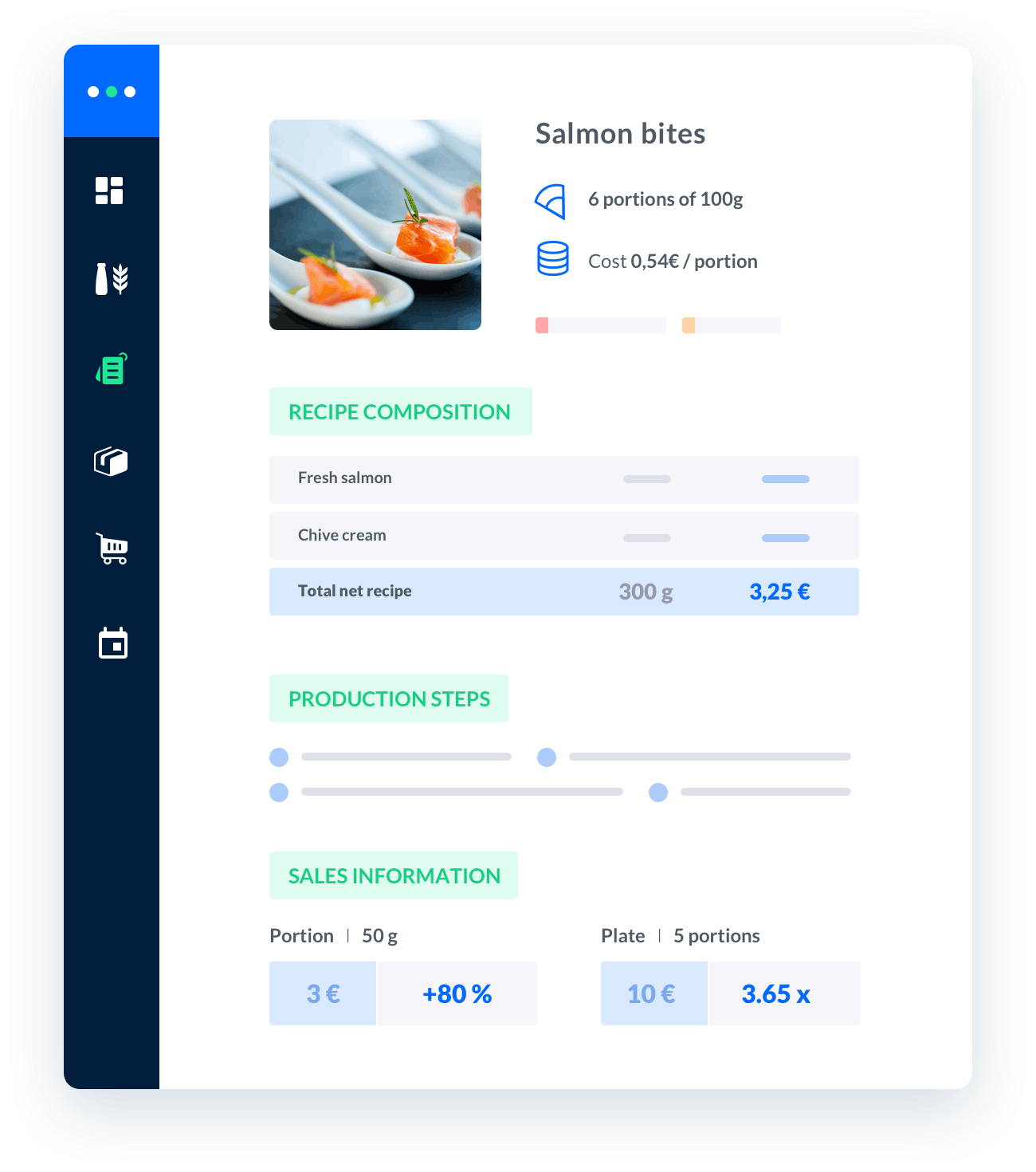food waste management software
Food waste management is a critical concern in the catering industry.With increasing awareness about sustainability and environmental impact, it is essential for businesses to implement effective strategies and utilize innovative tools to minimize food waste.

Melba: the food cost app to optimize the profitability of your restaurant
Discover how to optimize the profitability of your restaurant with melba

The ultimate guide to food cost restaurant
Learn more about the food cost basis and how to reduce your food cost percentage
Food waste management is a critical concern in the catering industry. With increasing awareness about sustainability and environmental impact, it is essential for businesses to implement effective strategies and utilize innovative tools to minimize food waste. One such tool that has gained significant popularity is food waste management software.
The Importance of Food Waste Management
Food waste is a global problem that has severe economic, environmental, and social consequences. According to the Food and Agriculture Organization (FAO) of the United Nations, approximately one-third of the food produced worldwide is wasted. This wastage not only results in significant financial losses but also contributes to greenhouse gas emissions and resource depletion.
1. Financial Impact
Food waste directly affects the bottom line of catering businesses. By implementing an efficient food waste management system, businesses can reduce costs associated with overproduction, improper inventory management, and disposal expenses.
2. Environmental Consequences
Food waste generates greenhouse gases, primarily methane, during decomposition. Methane is a potent greenhouse gas that contributes to climate change. By effectively managing food waste, businesses can lower their carbon footprint and contribute to a more sustainable future.
3. Social Responsibility
The issue of food waste goes beyond economic and environmental factors. It also has significant social implications. By reducing food waste, businesses can help address food insecurity and hunger by redirecting surplus food to those in need.
Understanding Food Waste Management Software
Food waste management software is a technology-driven solution designed to help businesses track, analyze, and manage their food waste. This software offers a range of features and functionalities that streamline the waste management process, enabling businesses to make data-driven decisions and optimize their operations.
1. Waste Tracking and Analytics
Food waste management software allows businesses to monitor and track their waste generation throughout the entire food production and consumption cycle. By capturing data on the types and quantities of wasted food, businesses can gain valuable insights into their waste patterns and identify areas for improvement.
2. Inventory Management
Effective inventory management is crucial for minimizing food waste. Food waste management software enables businesses to track inventory levels, monitor expiration dates, and optimize purchasing decisions. By ensuring efficient utilization of ingredients, businesses can reduce the likelihood of food spoilage and waste.
3. Donation and Redirection
Many food waste management software solutions offer functionalities that facilitate food donation and redirection. By connecting businesses with local food banks, shelters, or charitable organizations, surplus food can be redistributed to those in need, thus reducing waste and supporting community initiatives.
Benefits of Implementing Food Waste Management Software
Integrating food waste management software into your catering operations can offer numerous advantages:
- Reduced food waste and associated costs
- Improved inventory management and purchasing decisions
- Enhanced sustainability and reduced environmental impact
- Streamlined waste tracking and analytics
- Increased operational efficiency
- Support for community initiatives and social responsibility
Choosing the Right Food Waste Management Software
When selecting a food waste management software for your catering business, it is important to consider the following factors:
1. Scalability and Customizability
Ensure that the software can be tailored to your specific needs and accommodate the growth of your business. Look for scalability features that allow you to expand the system as your operations evolve.
2. User-Friendliness
Opt for a user-friendly interface that is intuitive and easy to navigate. The software should require minimal training and enable your staff to quickly adapt to the new system.
3. Integration Capabilities
Check if the software can seamlessly integrate with your existing systems, such as inventory management or point-of-sale software. This integration ensures smooth data flow and eliminates the need for manual data entry.
4. Reporting and Analytics
Look for robust reporting and analytics features that provide detailed insights into your waste generation, cost savings, and environmental impact. These metrics will help you monitor your progress and identify areas for further improvement.
Conclusion
Food waste management software is a valuable tool for catering businesses aiming to reduce waste, improve operational efficiency, and contribute to a more sustainable future. By implementing the right software solution and adopting best practices, businesses can make a significant impact on food waste management while reaping the associated financial, environmental, and social benefits.






